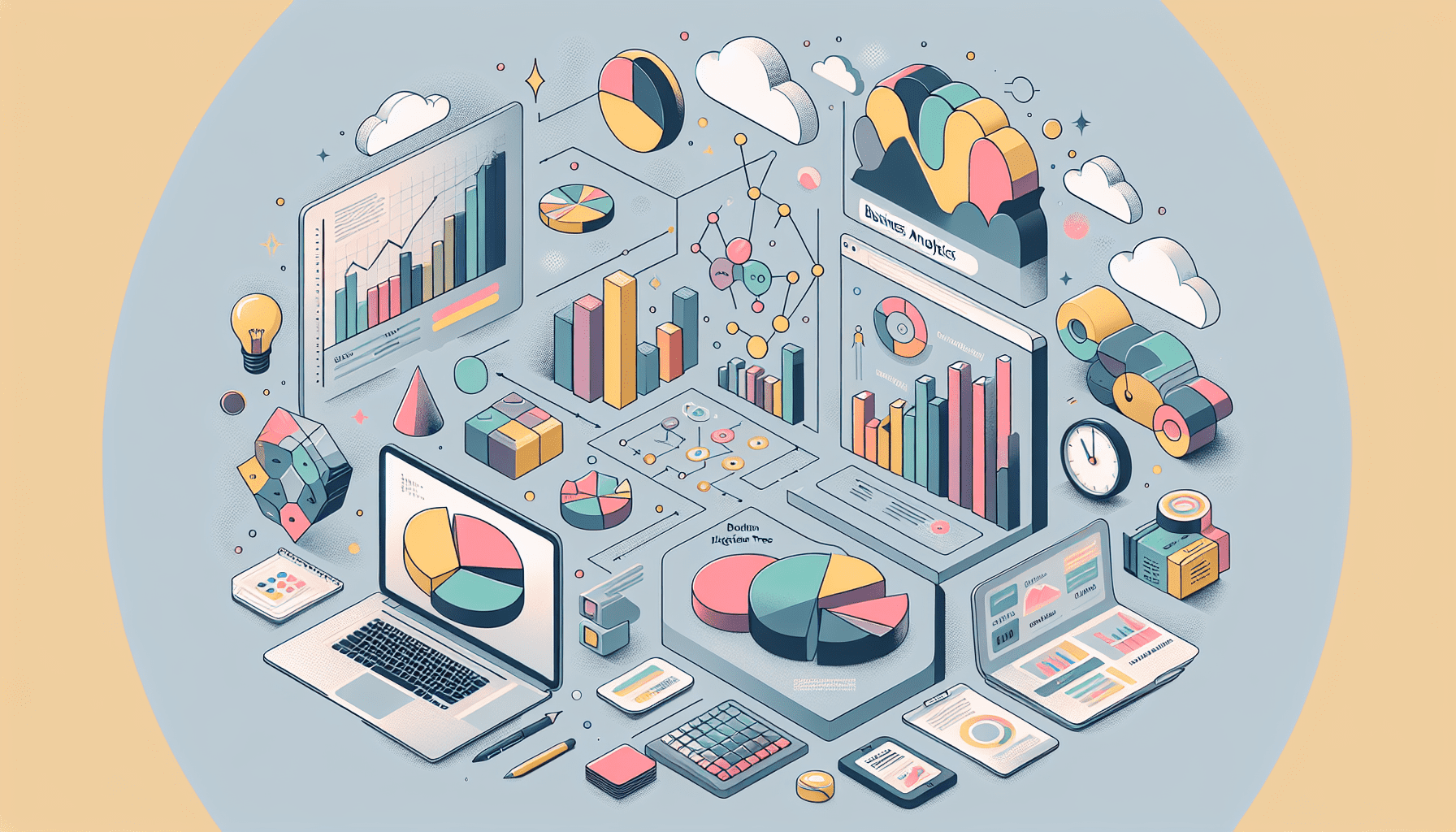Business Analytics Unveiling Data-Driven Insights for Strategic Decision-Making

Business Analytics Briefly Summarized
- Business analytics involves the use of data, statistical methods, and technology to analyze past business performance.
- It aims to provide insights, identify trends, and inform strategic business planning.
- The discipline encompasses various techniques, including data analysis, statistical models, and iterative exploration.
- Business analysts work across organizations to solve problems, improve systems, and ensure effective use of information systems.
- Business analytics is essential for staying competitive in today's data-driven marketplace.
Business analytics (BA) is a multifaceted field that has become a cornerstone of modern business strategy. By leveraging data, statistical analysis, and technology, organizations can uncover valuable insights that drive informed decision-making and strategic planning. In this comprehensive guide, we will explore the intricacies of business analytics, its importance in the corporate world, and how it is transforming the landscape of business operations.
Introduction to Business Analytics
At its core, business analytics is about understanding the past and present to predict the future and make data-driven decisions. It is a practice that combines skills, technologies, and iterative methodologies to explore and investigate business performance. The ultimate goal is to gain insight that aids in business planning and to address complex challenges with evidence-based solutions.
Business analytics is not just about processing data; it's about translating data into actionable intelligence. This process involves taking in historical business data, analyzing it to identify patterns, trends, and root causes, and then making informed decisions to improve business outcomes.
The Role of a Business Analyst
A business analyst (BA) serves as a bridge between the business problems and the technology solutions. Here are some of the key responsibilities of a business analyst:
- Investigating business systems and taking a holistic view of the situation, including organizational structures, staff development, processes, and IT systems.
- Evaluating actions to improve the operation of a business system, which may involve examining organizational structure and staff development needs.
- Documenting business requirements for IT system support using appropriate documentation standards.
Business analysts are not confined to IT projects; they are integral to various aspects of an organization, working closely with stakeholders to solve business problems and enhance performance.
Technologies and Tools in Business Analytics
Business analytics relies on a variety of technologies and tools to process and analyze data. These include, but are not limited to:
- Data mining and big data analytics platforms for handling large volumes of data.
- Statistical analysis software for applying mathematical and statistical techniques.
- Business intelligence (BI) tools for data visualization and reporting.
- Predictive analytics software for forecasting future trends and behaviors.
The Importance of Business Analytics
In today's competitive marketplace, business analytics is more than a luxury—it's a necessity. Companies that harness the power of BA can:
- Make more informed decisions that are backed by data.
- Identify market trends and customer preferences to stay ahead of the competition.
- Optimize operations and increase efficiency.
- Drive innovation by identifying new business opportunities.
Types of Business Analytics
Business analytics can be categorized into several types, each serving a different purpose:
- Descriptive Analytics: Focuses on summarizing historical data to understand what has happened in the past.
- Diagnostic Analytics: Delves into data to understand the causes of past events and behaviors.
- Predictive Analytics: Uses statistical models and forecasts to predict future outcomes.
- Prescriptive Analytics: Suggests actions to take for desired outcomes based on predictive insights.
Implementing Business Analytics
Implementing business analytics within an organization requires a strategic approach:
- Define clear objectives and goals for what the analytics should achieve.
- Ensure data quality and governance to maintain accurate and reliable data sources.
- Invest in the right tools and technologies that align with the business needs.
- Develop a skilled team of analysts and data scientists who can interpret and leverage data effectively.
- Foster a data-driven culture that values evidence-based decision-making.
Conclusion

Business analytics is an indispensable tool for organizations seeking to thrive in the modern data-driven economy. By effectively analyzing data, businesses can unlock insights that lead to better decisions, optimized operations, and innovative growth strategies. As the field continues to evolve, the demand for skilled business analysts and advanced analytics technologies will only increase, making BA a critical component of any successful business.
FAQs on Business Analytics
Q: What is the difference between business analytics and business intelligence? A: Business intelligence typically refers to the use of data and software tools to visualize and report on business data, while business analytics involves more in-depth analysis, including statistical and predictive modeling, to drive decision-making.
Q: Do I need a background in statistics to work in business analytics? A: While a background in statistics is beneficial, it is not always necessary. Many roles in business analytics also require business acumen and the ability to translate data insights into strategic actions.
Q: How is big data related to business analytics? A: Big data refers to the large volumes of data that businesses collect. Business analytics is the process of analyzing this data to extract meaningful insights and inform business decisions.
Q: Can small businesses benefit from business analytics? A: Yes, businesses of all sizes can benefit from business analytics. Even with limited resources, small businesses can use analytics to gain insights into customer behavior, improve operations, and compete more effectively.
Q: What educational paths can lead to a career in business analytics? A: Educational paths can include degrees in business analytics, data science, statistics, computer science, or related fields. Many professionals also acquire skills through online courses, certifications, and on-the-job training.
Sources
- Business analytics
- Business analytics - Wikipedia
- What is business analytics? - TechTarget
- What is Business Analytics? - Oracle
- Business Analytics Specialization [5 courses] (Penn) | Coursera
- Business Analytics: What It Is & Why It's Important | HBS Online
- Online Business Analytics Course | HBS Online
- What Can You Do With a Degree in Business Analytics?
- What is Business Analytics? Definition, Benefits, and Types
- What is Business Analytics? - IBM